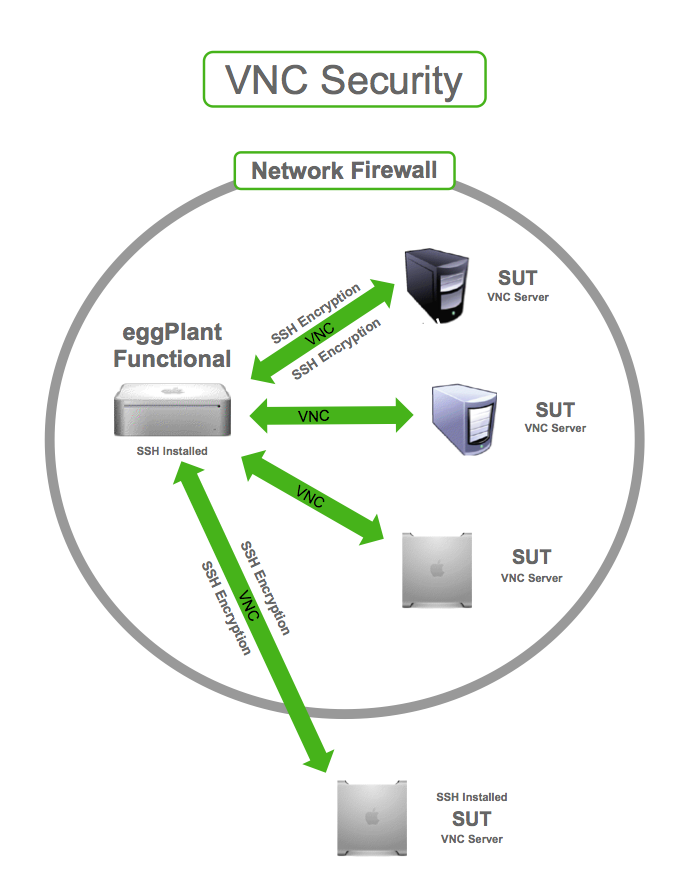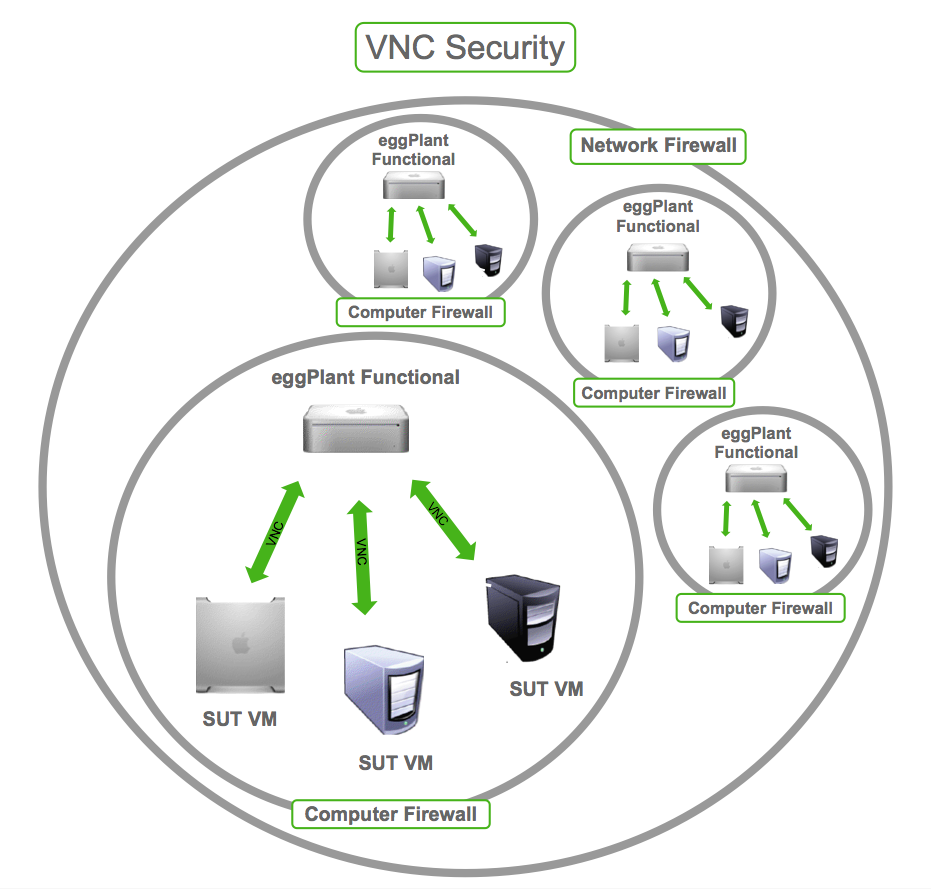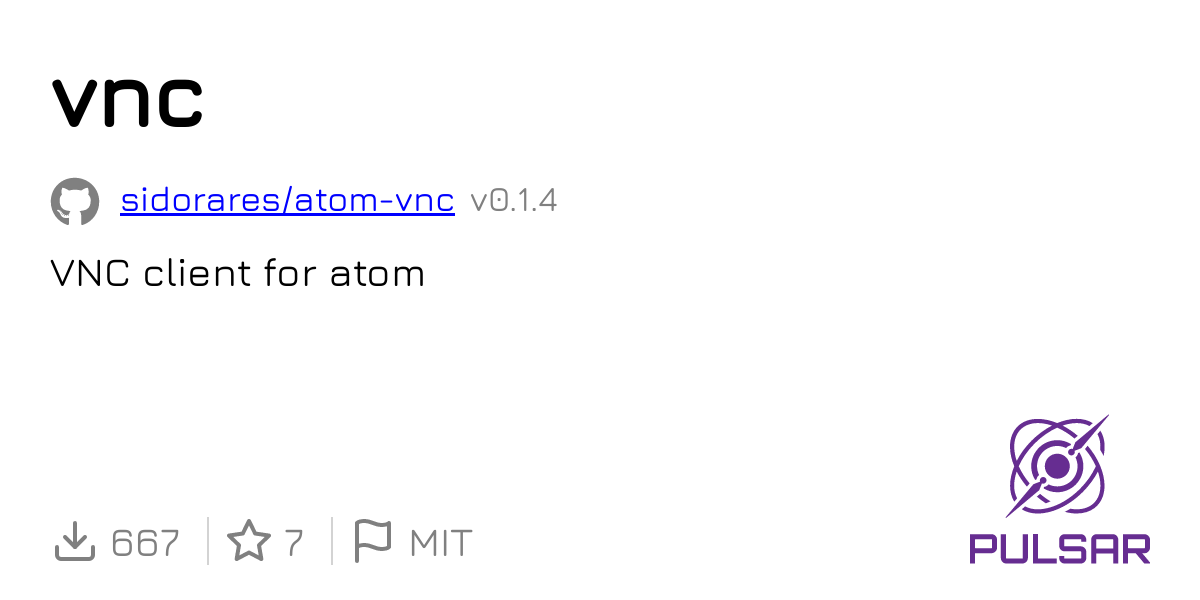VNC Security Issues: The Hidden Threats Lurking In Your Remote Connections
Imagine this: You're working from home, using VNC to access your office computer remotely. Everything seems fine until one day, you realize someone unauthorized has been lurking in your system. VNC security issues are real, and they could be putting your data at risk without you even realizing it. But don't panic just yet—this article will break it all down for you in simple terms and show you how to stay safe.
VNC, or Virtual Network Computing, is a powerful tool that lets you control another computer remotely. It's super handy for tech support, working from home, or accessing files on the go. But like any tool, it comes with its own set of challenges—especially when it comes to security. In this article, we'll dive deep into the world of VNC security issues, uncovering the risks and offering practical solutions to keep your data safe.
Before we get into the nitty-gritty, let's set the stage. VNC is widely used across industries, but its popularity also makes it a target for hackers. Whether you're a small business owner, an IT professional, or just someone who uses VNC for personal tasks, understanding these security issues is crucial. So, buckle up—we're about to take you on a journey through the ins and outs of VNC security.
Read also:Tanner Buchanan Naked The Truth Behind The Headlines And Sensationalism
What Exactly Are VNC Security Issues?
VNC security issues refer to the vulnerabilities and risks associated with using Virtual Network Computing software. These issues can range from weak passwords to unencrypted connections, making your system an easy target for cybercriminals. But here's the kicker: many users aren't even aware of these risks until it's too late.
Think about it—VNC allows you to access sensitive data, control applications, and even manage entire networks. If a hacker gains unauthorized access, the consequences can be devastating. From stolen data to compromised systems, the potential damage is huge. That's why understanding these issues is the first step toward protecting yourself.
Common VNC Security Risks
Let's break down some of the most common VNC security risks you should be aware of:
- Weak Passwords: Using simple or easily guessable passwords is a major no-no. Hackers can use brute force attacks to crack these in no time.
- Unencrypted Connections: If your VNC connection isn't encrypted, any data transmitted can be intercepted by malicious actors.
- Outdated Software: Failing to update your VNC software can leave you vulnerable to known exploits and vulnerabilities.
- Unauthorized Access: Without proper authentication mechanisms, anyone with the right credentials could gain access to your system.
These risks might sound scary, but the good news is that most of them can be mitigated with the right precautions. Keep reading to learn how!
Why Should You Care About VNC Security Issues?
VNC security issues aren't just something to shrug off—they have real-world implications that can affect both individuals and businesses. For starters, a compromised VNC connection can lead to:
- Data breaches that expose sensitive information
- Financial losses due to stolen funds or ransomware attacks
- Reputational damage if customer data is compromised
- Legal consequences if you're found non-compliant with data protection regulations
But it's not all doom and gloom. By taking proactive steps to secure your VNC setup, you can significantly reduce these risks. Whether you're protecting your personal data or safeguarding your company's assets, VNC security should be a top priority.
Read also:Club Universidad Nacional Ac Training Complex The Heart Of Soccer Excellence
Real-World Examples of VNC Security Breaches
To give you a better idea of the stakes, here are a couple of real-world examples of VNC security breaches:
- In 2020, researchers discovered over 70,000 unsecured VNC servers exposed on the internet, many of which were vulnerable to brute force attacks.
- A healthcare provider in the U.S. suffered a major data breach after a hacker exploited a weak VNC connection, resulting in the exposure of thousands of patient records.
These examples highlight just how critical it is to address VNC security issues before they become major problems.
How to Secure Your VNC Connections
Now that we've covered the risks, let's talk solutions. Here are some practical steps you can take to secure your VNC connections:
1. Use Strong Passwords
One of the simplest yet most effective ways to enhance VNC security is by using strong, unique passwords. Avoid common phrases or easily guessable combinations. Instead, opt for a mix of uppercase and lowercase letters, numbers, and special characters.
2. Enable Encryption
Encryption is your best defense against data interception. Make sure your VNC software supports encryption protocols like SSL/TLS and enable them whenever possible. This ensures that all data transmitted between your devices is secure.
3. Keep Your Software Updated
Regularly updating your VNC software is crucial for patching known vulnerabilities. Manufacturers often release updates to address security flaws, so staying current is key to staying protected.
4. Limit Access
Restrict VNC access to only those who absolutely need it. Use firewalls and IP whitelisting to control who can connect to your system. This adds an extra layer of security and reduces the risk of unauthorized access.
Advanced VNC Security Measures
For those looking to take their VNC security to the next level, here are some advanced measures you can consider:
1. Two-Factor Authentication
Two-factor authentication (2FA) adds an extra layer of security by requiring users to provide two forms of identification before gaining access. This could be a password plus a one-time code sent to your phone, for example.
2. Network Segmentation
Segmenting your network can help isolate VNC traffic from other critical systems. This way, even if a VNC connection is compromised, the damage will be contained to a specific part of your network.
3. Regular Audits
Conducting regular security audits can help identify and address potential vulnerabilities in your VNC setup. This includes checking for weak passwords, outdated software, and unauthorized access attempts.
The Role of Firewalls in VNC Security
Firewalls play a crucial role in VNC security by controlling incoming and outgoing traffic. By configuring your firewall to only allow trusted IP addresses, you can significantly reduce the risk of unauthorized access. Additionally, firewalls can block suspicious activity and alert you to potential threats in real-time.
Tips for Configuring Your Firewall
- Set up rules to allow VNC traffic only from specific IP addresses
- Monitor firewall logs regularly for any unusual activity
- Use intrusion detection systems (IDS) to enhance your firewall's capabilities
While firewalls aren't a silver bullet, they're an essential component of any robust VNC security strategy.
VNC Security Best Practices
Here's a quick rundown of VNC security best practices to keep in mind:
- Always use the latest version of VNC software
- Implement strong authentication mechanisms
- Encrypt all VNC connections
- Limit access to trusted users only
- Regularly review and update your security policies
Following these best practices can go a long way in protecting your VNC connections from potential threats.
Common Misconceptions About VNC Security
There are several misconceptions about VNC security that can lead to complacency. Let's debunk a few of them:
1. "My VNC Connection Is Secure Because I Use a Password"
While passwords are important, they're not enough on their own. Without encryption and other security measures, your VNC connection is still vulnerable to attacks.
2. "I Don't Need to Worry About VNC Security If I'm Just Using It for Personal Tasks"
Even personal VNC connections can be targeted by hackers. If your system contains sensitive information, it's worth taking the necessary precautions to secure it.
The Future of VNC Security
As technology continues to evolve, so do the methods used by cybercriminals. The future of VNC security will likely involve more advanced encryption protocols, AI-driven threat detection, and even biometric authentication. Staying informed about these advancements is key to staying ahead of potential threats.
Emerging Technologies in VNC Security
- Quantum encryption for ultra-secure connections
- Machine learning algorithms to detect and respond to threats in real-time
- Biometric authentication methods like fingerprint scanning and facial recognition
While these technologies may seem futuristic, they're closer than you think. Keeping an eye on emerging trends can help you prepare for the next generation of VNC security.
Conclusion: Stay Safe, Stay Secure
So there you have it—a comprehensive look at VNC security issues and how to address them. From understanding the risks to implementing practical solutions, securing your VNC connections is within reach. Remember, the key to staying safe is staying informed and taking proactive steps to protect your data.
We encourage you to share this article with others who might benefit from it. And if you have any questions or want to share your own experiences with VNC security, feel free to leave a comment below. Together, we can create a safer digital world—one VNC connection at a time.
Table of Contents:
- What Exactly Are VNC Security Issues?
- Why Should You Care About VNC Security Issues?
- How to Secure Your VNC Connections
- Advanced VNC Security Measures
- The Role of Firewalls in VNC Security
- VNC Security Best Practices
- Common Misconceptions About VNC Security
- The Future of VNC Security
- Conclusion


![[2025] Fixed! VNC's "Too Many Security Failures" Error](https://images.airdroid.com/2024/09/how-to-fix-vnc-too-many-security-failures-02-768x548.png)
